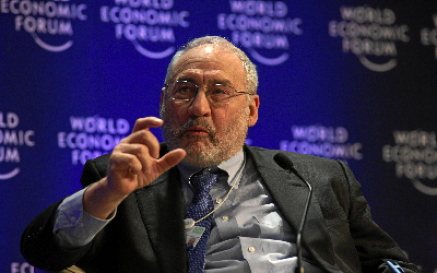NEW YORK – Soon after the global financial crisis erupted in 2008, I warned that unless the right policies were adopted, Japanese-style malaise – slow growth and near-stagnant incomes for years to come – could set in. While leaders on both sides of the Atlantic claimed that they had learned the lessons of Japan, they promptly proceeded to repeat some of the same mistakes. Now, even a key former United States official, the economist Larry Summers, is warning of secular stagnation.
The basic point that I raised a half-decade ago was that, in a fundamental sense, the US economy was sick even before the crisis: it was only an asset-price bubble, created through lax regulation and low interest rates, that had made the economy seem robust. Beneath the surface, numerous problems were festering: growing inequality; an unmet need for structural reform (moving from a manufacturing-based economy to services and adapting to changing global comparative advantages); persistent global imbalances; and a financial system more attuned to speculating than to making investments that would create jobs, increase productivity, and redeploy surpluses to maximize social returns.
Policymakers’ response to the crisis failed to address these issues; worse, it exacerbated some of them and created new ones – and not just in the US. The result has been increased indebtedness in many countries, as the collapse of GDP undermined government revenues. Moreover, underinvestment in both the public and private sector has created a generation of young people who have spent years idle and increasingly alienated at a point in their lives when they should have been honing their skills and increasing their productivity.
On both sides of the Atlantic, GDP is likely to grow considerably faster this year than in 2013. But, before leaders who embraced austerity policies open the champagne and toast themselves, they should examine where we are and consider the near-irreparable damage that these policies have caused.
Every downturn eventually comes to an end. The mark of a good policy is that it succeeds in making the downturn shallower and shorter than it otherwise would have been. The mark of the austerity policies that many governments embraced is that they made the downturn far deeper and longer than was necessary, with long-lasting consequences.
Real (inflation-adjusted) GDP per capita is lower in most of the North Atlantic than it was in 2007; in Greece, the economy has shrunk by an estimated 23%. Germany, the top-performing European country, has recorded miserly 0.7% average annual growth over the last six years. The US economy is still roughly 15% smaller than it would have been had growth continued even on the moderate pre-crisis trajectory.
But even these numbers do not tell the full story of how bad things are, because GDP is not a good measure of success. Far more relevant is what is happening to household incomes. Median real income in the US is below its level in 1989, a quarter-century ago; median income for full-time male workers is lower now than it was more than 40 years ago.
Some, like the economist Robert Gordon, have suggested that we should adjust to a new reality in which long-term productivity growth will be significantly below what it has been over the past century. Given economists’ miserable record – reflected in the run-up to the crisis – for even three-year predictions, no one should have much confidence in a crystal ball that forecasts decades into the future. But this much seems clear: unless government policies change, we are in for a long period of disappointment.
Markets are not self-correcting. The underlying fundamental problems that I outlined earlier could get worse – and many are. Inequality leads to weak demand; widening inequality weakens demand even more; and, in most countries, including the US, the crisis has only worsened inequality.
The trade surpluses of northern Europe have increased, even as China’s have moderated. Most important, markets have never been very good at achieving structural transformations quickly on their own; the transition from agriculture to manufacturing, for example, was anything but smooth; on the contrary, it was accompanied by significant social dislocation and the Great Depression.
This time is no different, but in some ways it could be worse: the sectors that should be growing, reflecting the needs and desires of citizens, are services like education and health, which traditionally have been publicly financed, and for good reason. But, rather than government facilitating the transition, austerity is inhibiting it.
Malaise is better than a recession, and a recession is better than a depression. But the difficulties that we are facing now are not the result of the inexorable laws of economics, to which we simply must adjust, as we would to a natural disaster, like an earthquake or tsunami. They are not even a kind of penance that we have to pay for past sins – though, to be sure, the neoliberal policies that have prevailed for the past three decades have much to do with our current predicament.
Instead, our current difficulties are the result of flawed policies. There are alternatives. But we will not find them in the self-satisfied complacency of the elites, whose incomes and stock portfolios are once again soaring. Only some people, it seems, must adjust to a permanently lower standard of living. Unfortunately, those people happen to be most people.
This article is brought to you by Project Syndicate.


